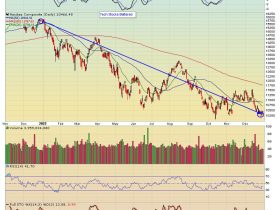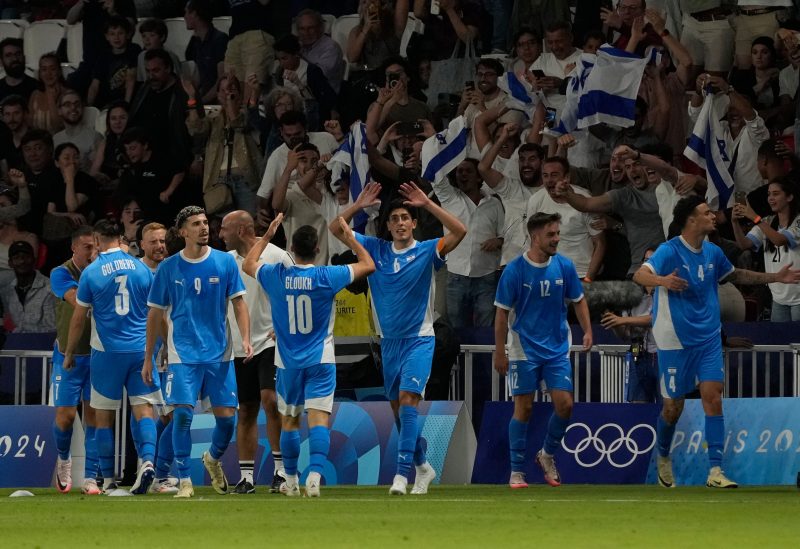PARIS – What could very well be the most antisemitic Olympics since 1936, when Adolf Hitler successfully tricked the United States into bringing its delegation to Berlin, got off to a disheartening start Wednesday when tens of thousands of fans at Parc des Princes Stadium booed and hissed and whistled their way through the Israeli national anthem.
Make no mistake: France in 2024 is not Nazi Germany – far from it. By the end of the song, the voices of Israel’s fans – clearly in the minority during this men’s soccer match against Mali – had grown loud enough to drown out the dissent. But on the opening day of competition at these Paris Games, the message was clear: At a sporting event that is meant to transcend global politics and even war, there is only one country for which the norms do not seem to apply.
“It’s not nice to hear that,” Liel Abada, who plays for Charlotte FC in MLS, said after the 1-1 tie. “But we’re just focused about ourself. We just want to make our fans in Israel, our fans who came here tonight proud and this is the most important for us.”
Despite an alarming antisemitism problem in this country and calls from some far-left French politicians to protest Israel’s participation due to the war in Gaza, significant security resources are being devoted to keep the athletes safe from potential attacks and bring down the temperature around any events where Israelis participate.
That was obvious outside the stadium Wednesday as clusters of uniformed and visibly armed police officers were apparent in all directions and a secure perimeter was established at least 75 yards from the entrance. Only fans with tickets were allowed to get near the stadium, and their belongings were inspected upon entry.
As the Israeli team’s bus approached the stadium, it was escorted by a cadre of vans and motorcycles and even policemen on foot with shields.
It sent a clear message amidst a tense time for Israeli athletes: Any hint of disorder around a venue with Israelis will not be tolerated.
“In the Olympic Village and also here we feel safe and we feel focused on football,” team captain Omri Gandelman said. “This is our target to focus on the field and we block out the noise.”
Should that feeling of security hold throughout the Games, it will be a credit to French president Emanuel Macron, his country’s security apparatus and the IOC.
But it can’t account for how people in the stands treat the Israeli delegation or how ugly it might get. Whistling during a country’s national anthem may not be the world’s biggest sin – and there are certainly legitimate criticisms over how the Israeli government has conducted itself in response to Hamas’ deadly terrorist attack last Oct. 7 – but it’s a level of disrespect that would not be accepted regarding any other country.
Especially at the Olympics.
“I find it crazy the double-standard that Israel is held to when it’s defending itself and people are just looking for an excuse to hate on us,” Jared Firestone, a Miami native who hopes to represent Israel in skeleton at the 2026 Winter Games, said by phone. “Athletes are out there as an easy target to spew hate at, even though they have little to nothing to do with anything going on politically.
“For me, personally, it makes me more resolute. It motivates me in my training to make sure when I’m representing Israel that I’m doing the best I can in putting its best foot forward both on and off the field. It would be nice if everybody was cheering us everywhere we went, but that’s not what I expect.”
It is, of course, impossible to totally separate world events from these or any Olympic Games. International conflicts are always part of the narrative, and often the reality. Even in times of relative peace and calm, Israeli athletes have in past Olympics been at the center of the debate. Three years ago in Japan, for example, a Sudanese judoka didn’t show up for a match against an Israeli competitor and dropped out of the Games.
Even now, the participation of Russian and Belarusian athletes in Paris under a neutral banner was contingent on a screening process that disqualified them if they showed support for the war in Ukraine. When pressed at a news conference Tuesday why Russian athletes were in effect being punished for their country’s war while Israel’s were not, IOC president Thomas Bach leaned on the idea that Russia’s Olympic committee claiming dominion over athletes in the contested Donbas region of Ukraine was a differentiating factor.
“The situation between Russia and Ukraine and Israel and Palestine is not comparable,” he said. “Such a violation by an NOC does not exist between the two NOCs of Palestine and Israel, and this has also been confirmed by the Court of Arbitration for Sport when the CAS rejected the appeal of the Russian Olympic committee against its suspension.”
Some may find that rationale flimsy, but the point is that these issues are not new. What’s different this time is the intensity of the international backlash to the bloody and gruesome civilian toll in Gaza. But when it comes to Israel, it is sometimes hard to tell where concerns over human rights end and antisemitism begins.
Is it with 13 fans in the front row Wednesday wearing masks and white T-shirts spelling out “Free Palestine” while the anthems played? Or is it with Thomas Portes, a member of the French Parliament, saying that the Israeli delegation isn’t welcome here?
Hard to say. But none of this is a surprise, especially to the Israelis.
“Our staff, before we came to this game and also this tournament, talked to us and we said we don’t have to fall for this provocation,” defender Ilay Feingold said. “Because we knew there would be Palestinian flags and we were ready for this.”
We will see, as the Games here play out and Israeli athletes are part of events all across the city, whether it fades into the background or remains central to how Paris 2024 is remembered – just as Berlin 1936 was remembered for the antisemitism Jewish athletes faced at every turn.
“The common denominator is these are very young people and they want to compete and they don’t really see politics,” said Rick Kaufman, who co-authored the recently released book ‘Played: The Games of the 1936 Berlin Olympics.’
“Hitler and (chief propagandist Joseph Goebbels) cleaned up everything and made sure it looked sparkling, but the newspapers were full of antisemitic rhetoric and half the people were antisemites. They booed these youngsters, Yugoslavian Jews and some of these other Jews that were winning.
‘They’re going to face that for sure. There’s antisemitism going on all over Europe, and I think Paris is going to be a hotbed for it. I pity them and worry about them.”










